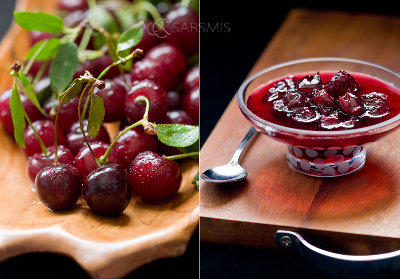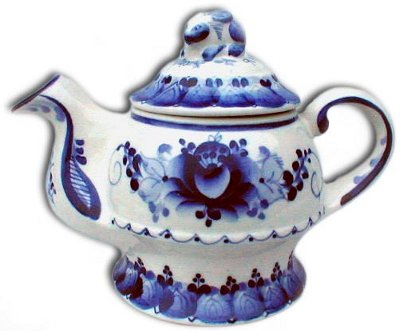Пудинг
Somewhere on the North American continent there is a gringo who has studied Russian who someday will see the word пудинг and immediately think of Bill Cosby and his Jello pudding commercials. Nope, Russian pudding is not that. The dictionary at gramota.ru describes it like this:
| Запеканка из крупы или муки, творога, мяса и т.п. с добавлением яиц, молока и разных пряностей. | A baked pudding made of grain, flour, farmers cheese or meat, etc., combined with eggs, milk, and various spices. |
One of the best пудинги of all time is творожный пудинг “farmers cheese pudding,” which is essentially a Russian cheesecake. Best of all, it's considered a dietetic dish that is especially healthy for children. If it's good for kids and can also be part of a meatless lifestyle, it obviously must be very healthy for adults, too! And what's even more interesting is that this cheesecake is made with «манная каша» “Cream of Wheat.” Doubtless you are now consumed with a desire for healthy cooking, so this link takes you to a bilingual recipe which I snagged from supercook.ru, and this link takes you to my cooking blog to see how I adapted it for personal production.
One last comment: I first encountered творожный пудинг in 1986 at Московский государственный университет. In the basement of the main building there was a shop that sold it along with other food items. They must have chosen the word пудинг because of the exotic sound of the word to the Russian ear. Students at МГУ could be counted on to be sophisticated enough to deal with that sort of thing, right? But really ordinary Russians almost never use the word пудинг. Instead they call this dish творожная запеканка.
Красивый
In English we say a man is handsome and a woman is pretty. Russians roll both concepts up in the single word красивый. It is completely regular in its declension, including its comparative form красивее:
| Masc | Neut | Fem | Pl | |
| Nom | красивый | красивое | красивая | красивые |
| Acc | * | красивую | * | |
| Gen | красивого | красивой | красивых | |
| Pre | красивом | |||
| Dat | красивому | красивым | ||
| Ins | красивым | красивыми | ||
Sample sentences:
| Какая она красивая! | How beautiful she is! |
| Какой он красивый! | How handsome he is! |
| Антонио Бандерас — очень красивый мужик. | Antonio Banderas is a very handsome guy. |
| Кристина Агилера — очень красивая девушка. | Christina Aguilera is a very pretty girl. |
| Кто красивее: Кети Перри или Зоуи Дешанель? (source) | Who is prettier, Katy Perry or Zooey Deschanel? |
| Бабушка всегда хотела жить в красивом доме, но дедушке всегда было жалко денег. | Grandma always wanted to live in a pretty house, but Grandpa always begrudged the money. |
| Она такая красивая, каких мало! | She is beautiful beyond belief! |
| Он донельзя красивый парень! | He is an unbelievably handsome guy! |
(Note that when «донельзя» is used to mean “very,” it is written as a single word and the stressoccurs not on the last syllable, but on the penultimate syllable. You could also say «до невозможности» in that context.)
Варенье
The Russian word варенье is used to identify a type of thick, sweet, conserved fruit or berry syrup. It is not exactly a jam, but more like a preserve. Berries and fruits are boiled in water with a lot of sugar until everything becomes thick and heavy. In fact, the word comes from the Russian варить (to boil) and can be confused with варение (the process of boiling something).
You can assuredly say that варенье is a part of the Russian cuisine and culture just like pelmeni, borscht and vodka are. Russian summers are brief and winters can get a little long, so people put up perishable fruits and berries for the cold days by preserving them. It has always been the most common type of dessert on the table and one of the essential innards of every home’s kitchen cabinet, especially if there are children. Most mothers and grandmothers have their own recipes with special ingredients that usually make homemade варенье taste far superior to whatever might be found on the supermarket shelf.
 Варенье made from cherries. Image from sarsmis.livejournal.com.
Варенье made from cherries. Image from sarsmis.livejournal.com.
Here are some example sentences:
| Мне больше всего нравится варенье из черной смородины. | My favorite preserve is black currant. |
| Завтра бабушка будет варить много варенья на зиму. | Tomorrow grandma will boil a lot of preserves for the winter. |
| Карлсон, который живет на крыше, очень любит варенье. | Carlson who lives on the roof loves preserves very much. |
| Не ешь клубничное варенье, а то у тебя будет диабет. | Don't eat strawberry preserve, or you’ll have diabetes. |
Брать/взять (часть первая)
The basic verb that means “to take” in Russian is брать/взять. Notice that for both verbs the past/infinitive stem differs from the present/future/imperative stem. Note also the ь that appears in the middle of the future/imperative forms of взять.
| to take | ||
| Imperfective | Perfective | |
| Infinitive | брать | взять |
| Past | брал брала брало брали |
взял взяла взяло взяли |
| Present | беру берёшь берёт берём берёте берут |
No such thing as perfective present in Russian. |
| Future |
буду брать будешь брать будет брать будем брать будете брать будут брать |
возьму возьмёшь возьмёт возьмём возьмёте возьмут |
| Imperative | бери(те) | возьми(те) |
The simplest meaning of the verb is “to grasp/pick up something with the hands”:
| Дима взял ручку и записал свой адрес. | Dima picked up a pen and wrote down his address. |
| Возьми эту отвёртку и отвинти вешалку со стены. | Take this screw driver and unscrew the coat rack from the wall. |
The verb pair can also mean “to remove from its previous position”:
| Кто взял мелочь из банки? Я её копил на пиво! | Who took the change from the jar? I was saving it up for beer! |
Very often the verb is used in the context where Americans would use “to get”:
| Ты возьми сигареты, а я возьму водку. | You get the cigarettes, and I'll get the vodka. |
Sometimes the verb is essentially the same as “to buy,” at least when the context is clear:
| Что ты взяла в магазине? | What did you buy/get at the store? |
| Почему вы взяли сигареты и водку? Вы ведь знаете, что я не пью и не курю. | Why did you buy/get cigarettes? After all, you know that I don't drink or smoke. |
Although we won't go over them here, it's a good idea to remember that брать/взять has quite a few other meanings as well, just as “to take” does in English. Among them are:
- to rent (a car, etc.)
- to accept someone into a group
- to take control of
- to make a sound
- to go in a particular direction
As a beginning language student, it is always good to remember that if a word doesn't seem to make sense in a particular context, it may well have other meanings in addition to those you already know. Always have a good paper dictionary which you can consult when the internet is down. And always know two or three online dictionaries that you can consult. Actually, what dictionaries to use is a good topic of discussion as well, but we'll save that for another day.
Чайник (часть первая)
The Russians word for a teakettle is чайник; it comes from the word чай (tea). The teakettle is used to heat up water for the tea, while the заварной чайник (teapot) refers to the vessel in which the actual tea is served. Today, many households also have the электрический чайник (electric teakettle). Russians commonly say чайник when talking about either one of the three, but fortunately that rarely causes confusion.
| Sg | Pl | |
| Nom | чайник | чайники |
| Acc | ||
| Gen | чайника | чайников |
| Pre | чайнике | чайниках |
| Dat | чайнику | чайникам |
| Ins | чайником | чайниками |
 image from goldmoscow.com
image from goldmoscow.comHere are a few example sentences:
| Слышишь? Чайник уже закипает, иди скорей на кухню и убери его с плиты. | You hear that? The teakettle is beginning to boil, hurry to the kitchen and remove it from the stove. |
| Мне подарили очень дорогой фарфоровый чайник, который я теперь использую только для лучших сортов японского и цейлонского чая. | As a present, I received a very expensive porcelain teapot which I now only use for the best Japanese and Ceylon teas. |
| Георгий случайно уронил поднос с завтраком, и полный, горячий чайник разбился вдребезги. | George accidentally dropped the breakfast tray and a full, hot teapot broke into tiny pieces. |
| Нам надо купить новый чайник, потому что этот уже заржавел. | We need to buy a new teakettle because this one has gotten too rusty. |
The word чайник can also be used as an insult when directed at someone who the offender considers to be a bit irrational and obtuse:
| Какой же ты чайник, ни одну математиматическую задачу на экзамене не решил. | What an airhead you are. You didn’t even solve one math problem on the exam. |
<< 1 ... 94 95 96 ...97 ...98 99 100 ...101 ...102 103 104 ... 158 >>